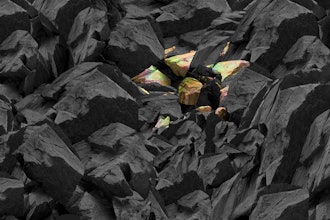CHICAGO (PRNewswire) — Halloween is just around the corner, and although candy consumption is almost unavoidable this time of year, the Academy of General Dentistry (AGD) wants parents and children to know that there are both good and bad candy options, both of which may find their way into children's trick-or-treat bags this fall.
"Of course, dentists do not advocate that children eat large amounts of sugary treats, but it is that time of year, so we want to clarify for parents which treats are better for their kids' teeth and which ones may increase the risk of developing cavities," says AGD spokesperson Cynthia Sherwood, DDS, FAGD.
Worst:
- Chewy/sticky sweets, such as gummy candies, taffy, and even dried fruit can be difficult for children and adults to resist, and even more difficult to remove from teeth. "These candies are a serious source of tooth decay, particularly when they get stuck in the crevices between teeth, making it nearly impossible for saliva to wash them away," Dr. Sherwood says.
- Sour candies are highly acidic and can break down tooth enamel quickly. The good news: Saliva slowly helps to restore the natural balance of the acid in the mouth. Dr. Sherwood recommends that patients wait 30 minutes to brush their teeth after consuming sour/acidic candies; otherwise, they will be brushing the acid onto more tooth surfaces and increasing the risk of enamel erosion.
- Sugary snacks, including candy corn, cookies, and cake, all contain high amounts of sugar, which can cause tooth decay.
Best:
- Sugar-free lollipops and hard candies stimulate saliva, which can help prevent dry mouth. "A dry mouth allows plaque to build up on teeth faster, leading to an increased risk of cavities," Dr. Sherwood says.
- Sugar-free gum can actually prevent cavities as it not only dislodges food particles from between the teeth but also increases saliva—which works to neutralize the acids of the mouth and prevent tooth decay.
- Dark chocolate and its antioxidants, according to some studies, can be good for the heart and may even lower blood pressure.
"Parents should closely monitor their children's candy intake this Halloween—and all year round—and continue to promote good oral health habits," Dr. Sherwood says. "Kids also should be brushing their teeth twice a day for two minutes."
For more tips on improving your child's oral health, speak with your dentist and visit KnowYourTeeth.com.
About KnowYourTeeth.com
KnowYourTeeth.com is the Academy of General Dentistry's (AGD) source of consumer information on dental care and oral health. Its goal is to provide reliable information in a format that is easy to use and navigate, and to provide the tools that will help consumers of all ages to care for their teeth and with other aspects of oral care. KnowYourTeeth.com answers important dental health questions, offers the latest information on current dental treatments and tips for first-rate oral hygiene, and can help visitors find qualified dentists near where they live or work.
About the Academy of General Dentistry
The Academy of General Dentistry (AGD) is a professional association of more than 37,000 general dentists dedicated to providing quality dental care and oral health education to the public. AGD members stay up to date in their profession through a commitment to continuing education. Founded in 1952, the AGD is the second largest dental association in the United States, and it is the only association that exclusively represents the needs and interests of general dentists. A general dentist is the primary care provider for patients of all ages and is responsible for the diagnosis, treatment, management, and overall coordination of services related to patients' oral health needs. For more information about the AGD, visit www.agd.org .






















